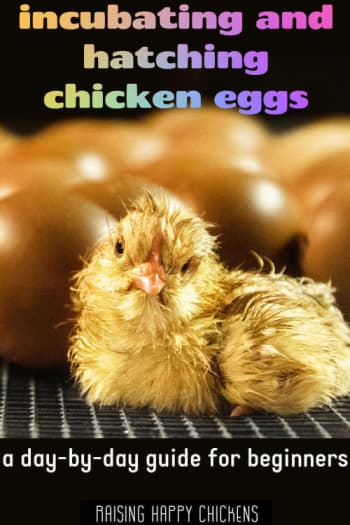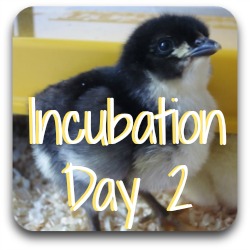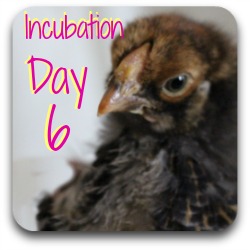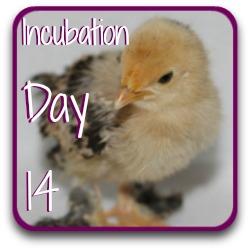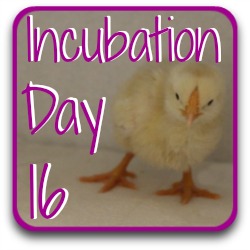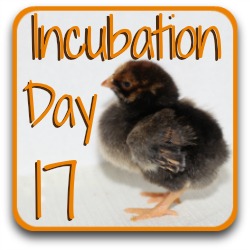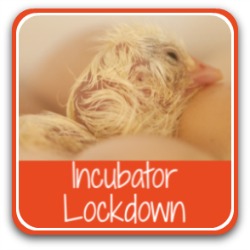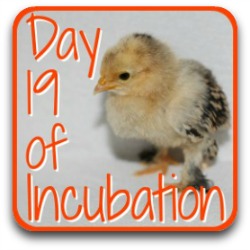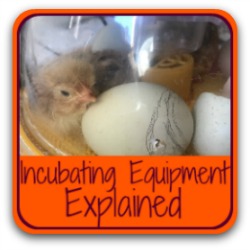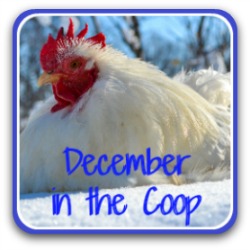- Home
- Incubation day by day
How to incubate chicken eggs: your complete guide to a happy hatch.
So you want to incubate and hatch chicken eggs at home or school but find the process a bit daunting?
It absolutely can be! So much can go wrong at any stage, and without a guide it's almost impossible to understand what's right, what's not, and what to do when something doesn't seem to be the way it should.
Been there, done that! I've hatched chicks every year for the last thirteen years and experienced more or less everything from great joy to intense sadness, and everything in between.
And now I'm sharing that information with you to help you and your family (or your students) hatch healthy, happy chicks!
Knowing what to look for at each stage of incubation can make the whole process much easier and less stressful to deal with.
As a bonus, kids love to see how their chicks are changing and developing each day!
It helps them to understand the life cycle from egg to chick to adult; to develop a sense of responsibility in nurturing another living being; and at its end it can provide them with a real sense of achievement.
Let me be your experienced guide in this magical process.
What does this guide cover?
From the minute detail of how your chick is growing day by day, to tasks you need to undertake at each stage, you'll find links here to detailed information about how to incubate chicken eggs for a successful hatch.
Use the links below to find your way through the sometimes bewildering daily process of incubation.
Each day's information includes which parts of the chick are developing; what can be seen using the candling process; steps we need to take to make sure the chick keeps growing; and what can go wrong, with solutions for putting it right!
The information is delivered by content based on not only my experience, but researched detail from expert studies; images of what's happening inside the egg each day; and, where appropriate, video of the candling process showing what to look for at critical stages of incubation.
If you're looking for specific days, use these links:
If you're considering incubating but aren't sure where to start, see this section.
If you're looking for a shorter course about incubation, this is where you need to be.

How to incubate chicken eggs: week 1.
Chicken eggs take approximately three weeks (21 days) to develop. The days of development fit neatly into three separate weeks.
This first week sees the egg develop from a tiny collection of cells to an embryo which is visible to the naked eye when using a candling lamp.
Click the button links to take you to whichever day you need to know about. Bear in mind that Day 1 covers the way in which the incubator needs to be set up for a successful outcome – don't skip it!
The final link in this section is to my review of Gail Damerow's "Hatching and Brooding Your Own Chicks" which I highly recommend if you intend to incubate chicken eggs. It covers everything you need to know – and a lot of things you didn't even realise you needed to know!
It's an indispensable guide for anyone, no matter whether you're new to incubating and hatching or a seasoned expert.

How to incubate chicken eggs: week 2.
Week 2 is in many ways the most interesting and exciting week of the incubation process. From the tiny speck which started to grow during week 1, we can watch the chick develop into a much larger being with recognisable parts.
The final link in this section is to information about preparing a chick brooder. Having somewhere for your baby chicks to live as soon as they hatch is critical.
So it's a task you'll need to undertake as we come to the start of week 3 and anticipate the arrival of your mini-flock.

How to incubate chicken eggs: week 3.
At last, the final week has arrived and we can expect to meet our baby chicks for the first time at its end.
But nature sometimes has a habit of not doing exactly what we expect it to do.
This week's articles cover what's happening in the egg, what needs to change in the incubator as we go into "chicken egg lockdown", why we shouldn't panic if the babies decide not to appear exactly on time, and most importantly, why it's critical to avoid the temptation to "help" them out of the egg.

Looking for information about how to prepare before incubating chicken eggs?
If you're considering incubating chicken eggs and you've never done it before, these articles will help you set everything up to increase the chances of a successful hatch.
Read them before you start Day 1 of the incubation process.
- Home
- Incubation day by day
